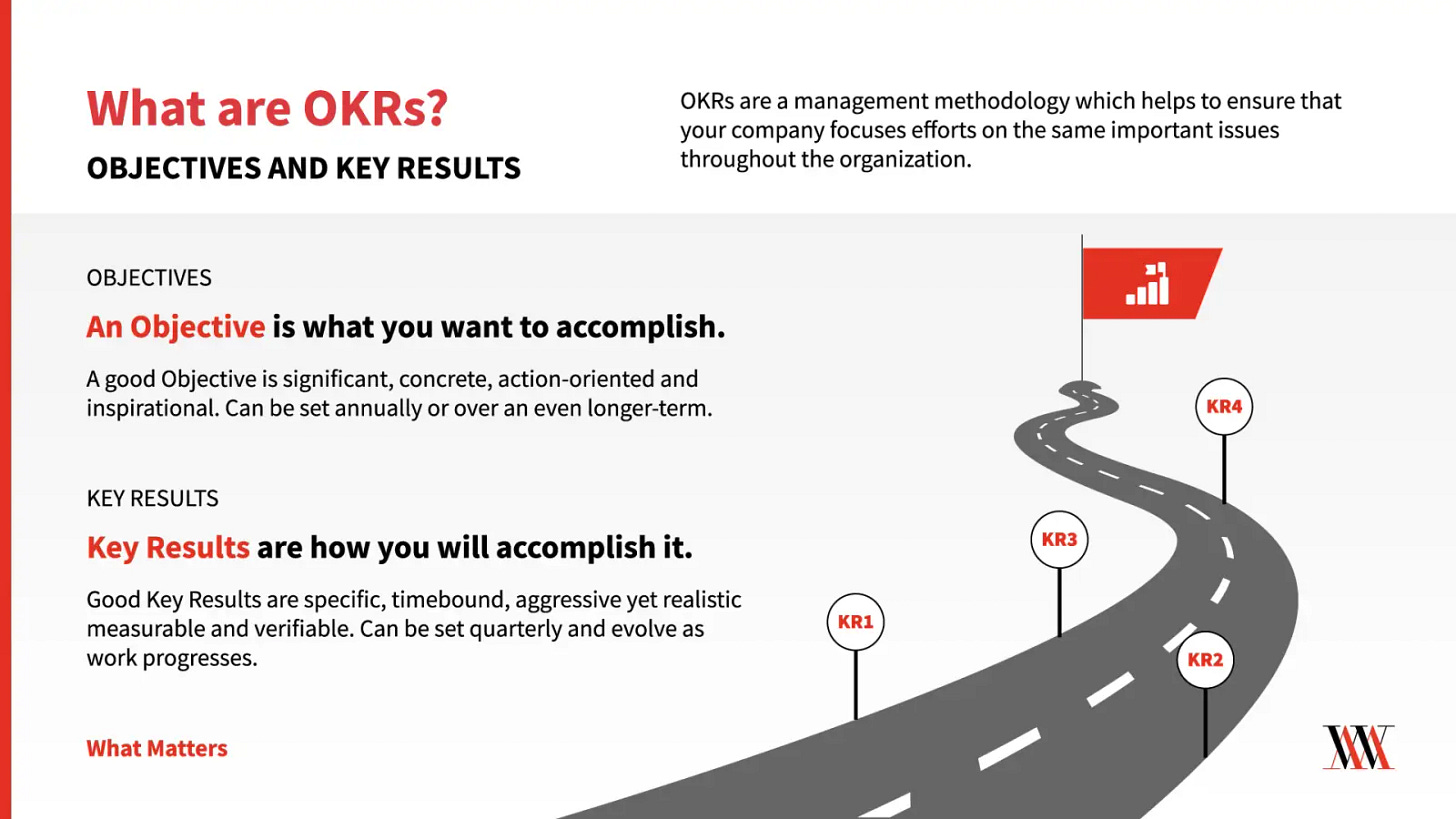“When Should I Start Using OKRs” - New on Ubiquity University
Our latest free Ubiquity University video lays out the incredible power of OKRs to drive company-wide alignment about a startup's priorities and measures of success.
Whether your startup is made up of two people or 10,000, it’s critical to ensure everyone is in alignment about the company’s goals and objectives. But in such a fast-paced & ever-changing environment, misalignment is inevitable, and this is where a powerful tool can help: OKRs.
In our latest free Ubiquity University video, Curated CEO & Co-founder Peter Ombres dives into the hype around OKRs, what they are, and why even early-stage startups should be using them: “When Should I Start Using OKRs?”
In this 16-minute Ubiquity University video (watch now), Curated CEO Peter takes us through the following:
What are OKRs?
Objectives & Key Results (OKRs) are a tool that allow you to take your company mission and distill it into a set of objectives and key results that define what success looks like and drive the business forward.
The approach is: 1 objective & 3-5 key results - but don’t confuse “objectives” with “initiatives”. These are completed at the company level as well as at the department/functional area level and the individual level. As a company grows, you’ll add more objectives because there are more priorities to accomplish. Rough guidance at scale is to have 2-4 company level Objectives and 3-5 Key Results under each.
Companies like Intel & Google use OKRs to promote organization-wide transparency and encourage cross-functional collaboration.

Source: www.whatmatters.com
Is It Worth the Investment?
Defining your objectives and key results is 10% of the work. The other 90% involves building consensus around the language for the objective itself and getting alignment across the leadership team, and then aligning on a set of key results, articulated with something that is measurable that needs to be achieved.
Most companies that use OKRs wish they had implemented the tool earlier, and this process works well even for the earliest stages of startups.
The Best Way to Roll out OKRs
Decide & commit: ensure the entire leadership team is committed, and in the spirit of transparency, ensure the whole organization knows that you’re doing this.
Educate team on OKRs: to ensure everyone understands how to use this tool, Peter recommends reading “Measure What Matters” by John Doerr. More at
Practice, practice, practice: keep practicing this process as it takes a few times to get it under your belt.
Ubiquity University: free, short videos for early-stage startups
We built Ubiquity University to unlock growth for early-stage startup leaders by sharing the latest knowledge and advice for pre-seed, seed, and Series A stage entrepreneurs. We have dozens of free, short (5-15 minute) practical videos that dive into key concepts, mindset shifts, and tactical advice to help startup leaders grow and develop. Our speakers include the sharpest technical and business experts from the Ubiquity Extended Team and beyond. If you know individuals who would benefit from Ubiquity University, please pass this along.
Ubiquity Ventures — led by Sunil Nagaraj — is a seed-stage venture capital firm focused on startups solving real-world physical problems with "software beyond the screen", often using smart hardware or machine learning.
If your startup fits this description, fill out the 60-second Ubiquity pitch form and you’ll hear back shortly.





